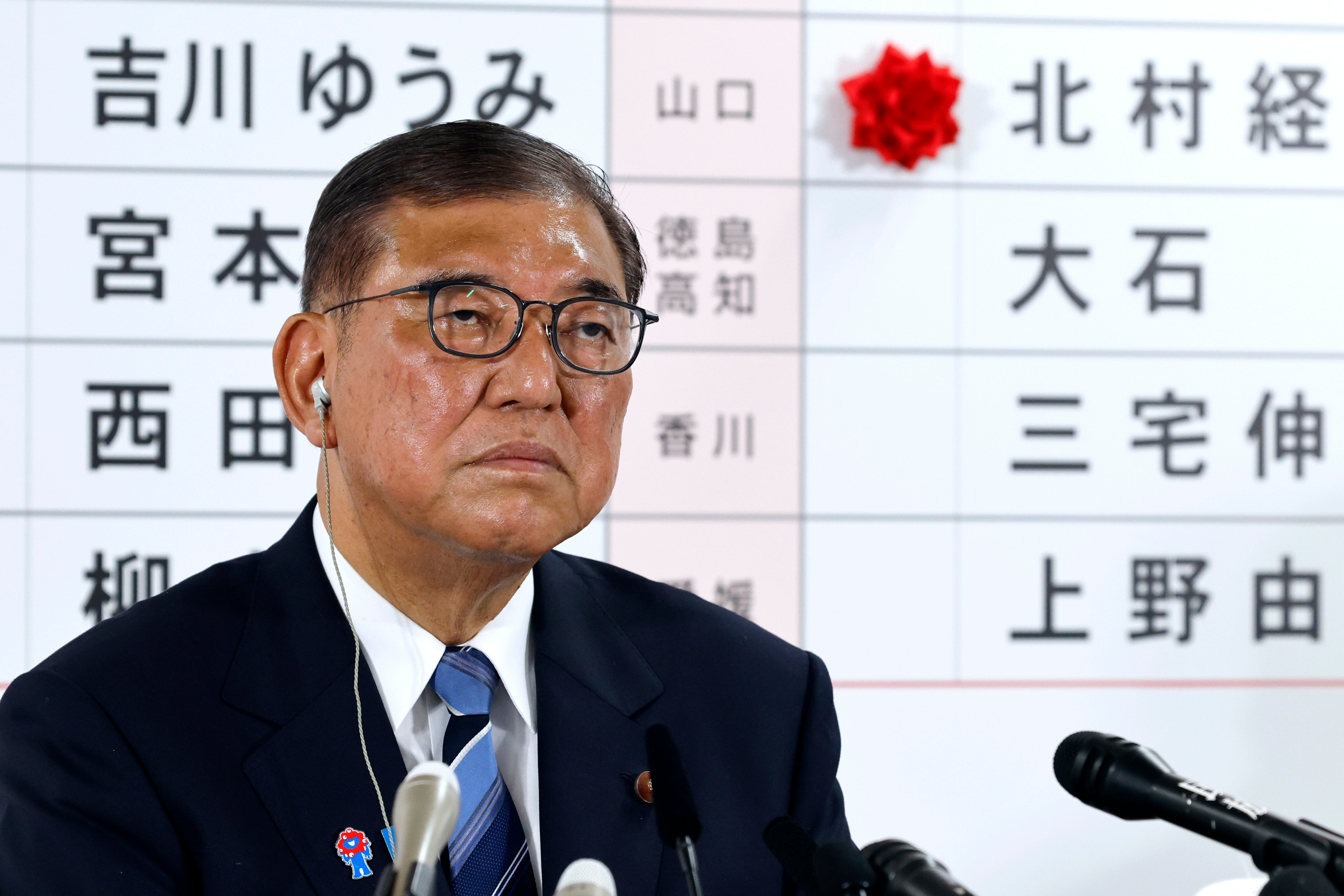Prime minister Shigeru Ishiba’s political future hangs in the balance after his ruling coalition suffered a significant setback in Japan’s upper house elections, losing its majority and plunging the government into a rare state of divided control.
The Liberal Democratic Party (LDP) and its junior partner Komeito won just 47 of the 125 contested seats in the House of Councillors, falling short of their pre-election target of 50 seats.
The coalition’s overall strength in the 248-member chamber has now dropped to 122 seats, down from 141 before the vote.
The tightly contested elections were held on Sunday amid voters’ frustration at the coalition over rising prices and the risk of Donald Trump’s tariffs.
However, Mr Ishiba has vowed not to quit in a series of televised remarks after the results were announced on Sunday evening.
Mr Ishiba told reporters he would remain prime minister, citing a looming tariff deadline with the United States set to strain the world’s fourth-largest economy.
But said he “solemnly” accepts the “harsh result”.

Having already lost its majority in Japan’s more powerful lower house last year, this latest defeat further weakens the coalition’s political influence.
With this loss, the ruling alliance no longer holds a majority in either house of Japan’s bicameral parliament – a scenario not seen in the country’s postwar political history.
Analysts say his days in office may be numbered now as opposition parties are pledging to cut taxes and tighten immigration policies.
“The political situation has become fluid and could lead to a leadership change or the reshuffling of the coalition in coming months, but prime minister Shigeru Ishiba will likely stay to complete the tariff negotiations with the US for now,” said Oxford Economics’ lead Japan economist Norihiro Yamaguchi.
Adding to the economic anxiety, Mr Ishiba’s lack of progress in averting tariffs set to be imposed by its biggest trading partner, the US, on 1 August appears to have frustrated some voters.
-in-Tokyo-7c6xkoye.jpeg)
“Had the ruling party resolved even one of these issues, it (their approval rate) would have gone up, but we didn’t feel anything and it seems like the US would continue to push us around,” Hideaki Matsuda, a 60-year-old company manager, said outside Tokyo’s bustling Shinjuku station on Monday morning.
The main opposition Constitutional Democratic Party (CDPJ) finished second in Sunday’s election with 22 seats in the ballot.
Its leader, Yoshihiko Noda, said he is considering submitting a vote of non-confidence in the Ishiba administration as the result showed it did not have voters’ trust.
Some of the votes also got divided with the far-right Sanseito party, which clocked the biggest gains of the night, adding 14 seats to one elected previously. Birthed on YouTube during the Covid-19 pandemic spreading conspiracy theories about vaccinations and a cabal of global elites, the party broke into mainstream politics with its “Japanese First” campaign and warnings about a “silent invasion” of foreigners.



